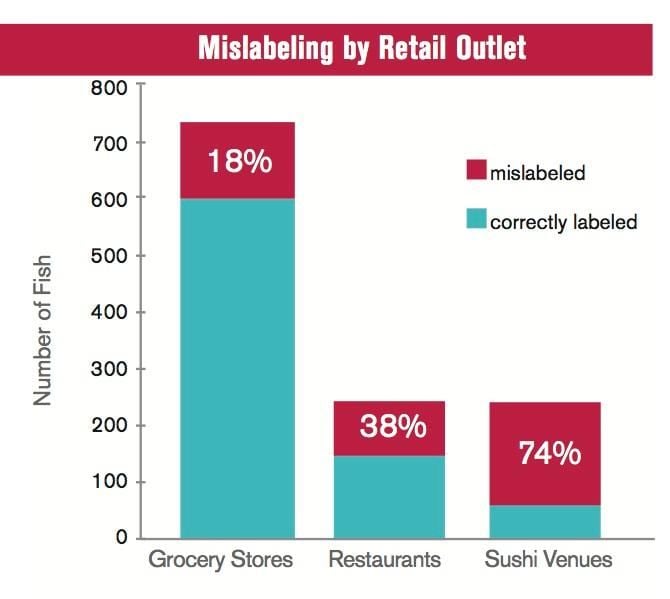More than Half of Our ‘Tuna’ Isn’t Really Tuna
Around one-third of 1,200 seafood samples from restaurants and grocery stores around the U.S. were not from the fish their label claimed to be
/https://tf-cmsv2-smithsonianmag-media.s3.amazonaws.com/filer/20130222030034sushi.jpg)
That delicious slice of toro you just slathered up with some wasabi and soy sauce? Turns out it might not even be tuna. The non-profit oceans conservation group Oceana just announced the results of one of the largest seafood fraud investigations to date, revealing just how many seafood sellers around the United States are less than honest about their offerings.
The study compiled data from more than 1,200 seafood samples from 674 retailers in 21 states between 2010 to 2012. DNA testing showed that 33 percent of those samples were mislabeled or posing as fish that they were not. Samples claimed to be tuna and snapper had the highest fail rates, at 59 percent and 87 percent, respectively. Only seven of 120 samples of “red snapper” purchased nationwide actually proved to be red snapper. The rest belonged to any of six different misrepresented species.
As Quartz points out, in Chicago, Austin, New York and Washington D.C., every single sushi restaurant sampled sold mislabeled tuna. For example, in 84 percent of samples, “white tuna” turned out to be escolar, a fish that can cause prolonged, uncontrollable oily anal leakage.
This graph, from Oceana, gives a sense of the magnitude of the problem:

Oceana calls for a transparent traceability system in the U.S. that tracks fish from boat to plate. Increased seafood inspection, the group thinks, may also deter retailers from selling fishy products. Though laws exist that address fraud, the group calls for better enforcement in the case of seafood label honesty.
As Quartz writes, if you’ve ever wondered why the sushi in the display case or at local supermarkets is so affordable given the dire state of the world’s tuna supply, well, now you know.
More from Smithsonian.com:
CSI Supermarket — Using Science to Combat Food Fraud
Sushi Restauranteur Spends 1.76 Million on a Single Bluefin Tuna
/https://tf-cmsv2-smithsonianmag-media.s3.amazonaws.com/accounts/headshot/Rachel-Nuwer-240.jpg)
/https://tf-cmsv2-smithsonianmag-media.s3.amazonaws.com/accounts/headshot/Rachel-Nuwer-240.jpg)